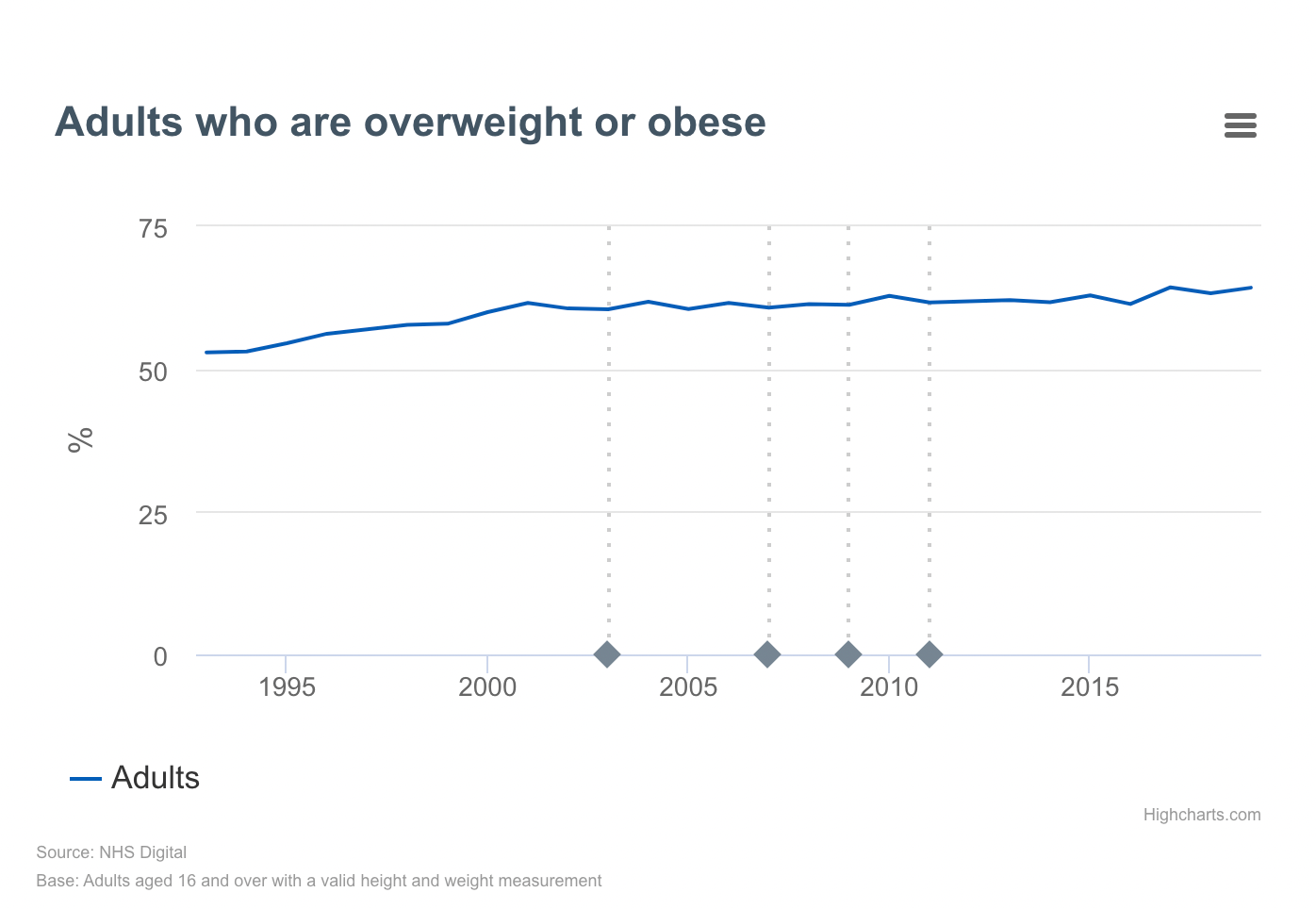

Share
24th June 2021
10:57am BST

The UK government is set to impose a ban on TV adverts for junk food high in sugar, salt and fat. There will also be new rules on online ads and promotion too, though the company websites will remain largely unaffected.
Prime Minister Boris Johnson said in an announcement that obesity, which affects more than a quarter of UK adults, has to be tackled. The WHO declared it a global health epidemic back in the 90s.
A total ban on online adverts was proposed last year, but this has been scaled back after consultation. The proposal itself saw huge backlash from companies such as Kellogg's and Britvic, arguing that plans were "disproportionate" and lacked evidence, with many agreeing with them.
The UK population's weight has risen since the early 1990s, with approximately 64% of the adult population now overweight or obese, according to NHS Digital.

Rates in children are also on the rise: around 30% now deemed to be obese as of 2019, with numbers are still rising. Problems often begin in childhood and those from the most disadvantaged backgrounds are most likely to suffer, as lower-quality 'junk' foods are often more affordable than cleaner, more organic products.

The government says it is keen to prevent young people from consuming too many unhealthy products and since 2018 manufacturers have had to pay extra tax on high-sugar drinks, such as Coca-Cola.
Ironically, back in 2006, the PM defended mothers who - in spite of efforts by TV chef Jamie Oliver to improve school meals - were reportedly pushing fatty foods through school railings to their children. He was quoted as saying: "I say let people eat what they like. Why shouldn't they push pies through the railings?"
It would seem his opinions have now changed, especially since contracting Covid-19. He said obesity was one of the "real co-morbidity factors" associated with the disease, adding that, "Losing weight, frankly, is one of the ways you can reduce your own risk from coronavirus."
The Institute of Practitioners in Advertising - which represents the large ad agencies - has said the government's own impact assessment shows a watershed on high-fat, sugar and salt food and drinks would only remove around 1.7 calories per day from a child's diet: the equivalent of half a Smartie. But then again, they wouldn't say that, wouldn't they?
Helping fight the good fight, Charmaine Griffiths, chief executive of the British Heart Foundation, said: "These plans are a bold and very positive step forward in protecting children from being inundated with junk food advertising." Surely any measure to help bring down national caloric intakes is a good thing, no matter how minimal it might seem to begin with.
She went on to say that "Introducing a 9pm TV watershed for junk food adverts and also further restrictions for online advertising is one important part in building a more healthy environment where the healthy option is the easy option."
The NHS says most adults with a body mass index (BMI) of 25 to 29.9 are overweight, while those with a BMI of 30 to 39.9 are classed as obese. You can check your BMI using their simple calculator here.
Explore more on these topics: